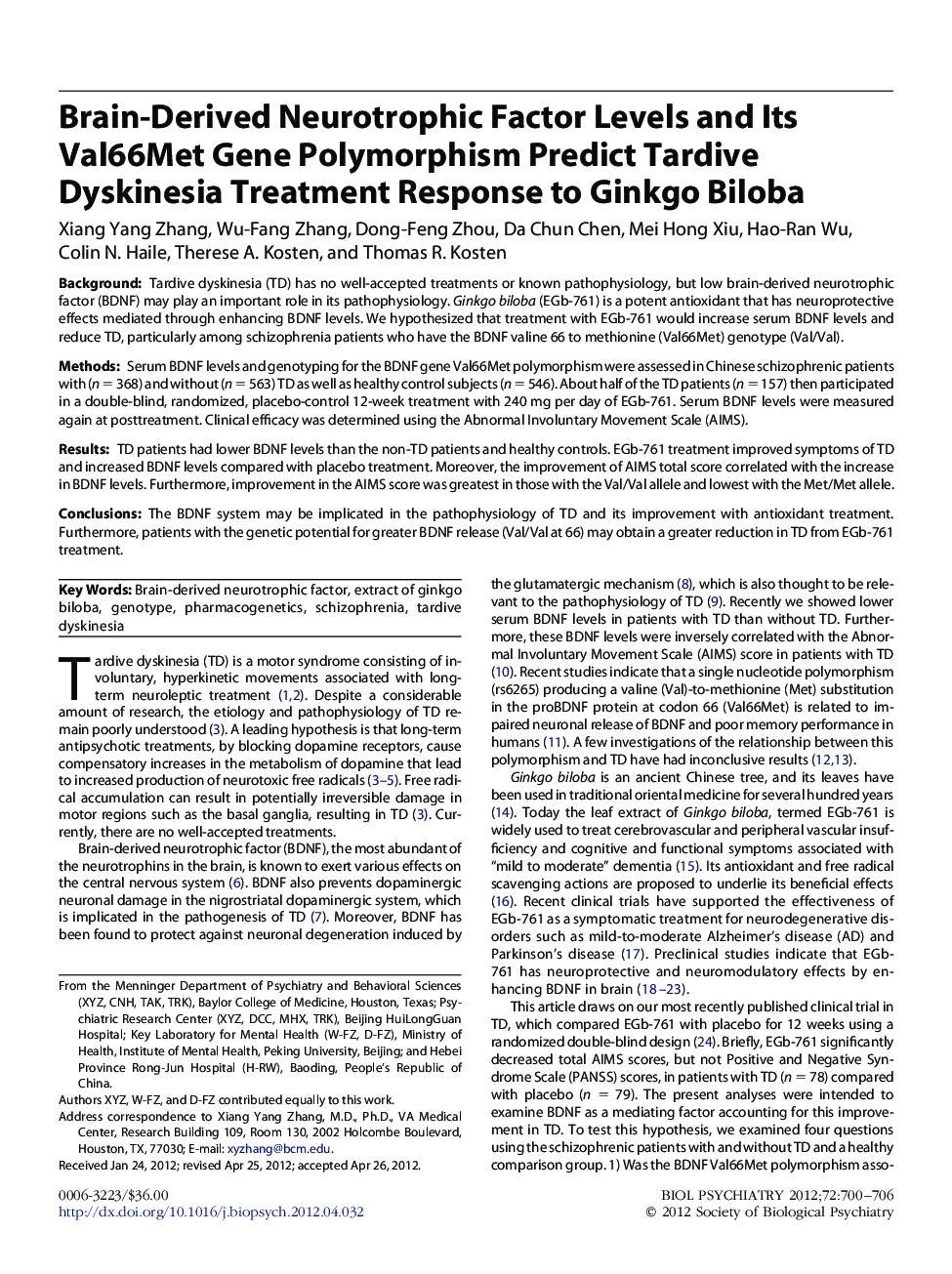| Article ID | Journal | Published Year | Pages | File Type |
|---|---|---|---|---|
| 4178588 | Biological Psychiatry | 2012 | 7 Pages |
BackgroundTardive dyskinesia (TD) has no well-accepted treatments or known pathophysiology, but low brain-derived neurotrophic factor (BDNF) may play an important role in its pathophysiology. Ginkgo biloba (EGb-761) is a potent antioxidant that has neuroprotective effects mediated through enhancing BDNF levels. We hypothesized that treatment with EGb-761 would increase serum BDNF levels and reduce TD, particularly among schizophrenia patients who have the BDNF valine 66 to methionine (Val66Met) genotype (Val/Val).MethodsSerum BDNF levels and genotyping for the BDNF gene Val66Met polymorphism were assessed in Chinese schizophrenic patients with (n = 368) and without (n = 563) TD as well as healthy control subjects (n = 546). About half of the TD patients (n = 157) then participated in a double-blind, randomized, placebo-control 12-week treatment with 240 mg per day of EGb-761. Serum BDNF levels were measured again at posttreatment. Clinical efficacy was determined using the Abnormal Involuntary Movement Scale (AIMS).ResultsTD patients had lower BDNF levels than the non-TD patients and healthy controls. EGb-761 treatment improved symptoms of TD and increased BDNF levels compared with placebo treatment. Moreover, the improvement of AIMS total score correlated with the increase in BDNF levels. Furthermore, improvement in the AIMS score was greatest in those with the Val/Val allele and lowest with the Met/Met allele.ConclusionsThe BDNF system may be implicated in the pathophysiology of TD and its improvement with antioxidant treatment. Furthermore, patients with the genetic potential for greater BDNF release (Val/Val at 66) may obtain a greater reduction in TD from EGb-761 treatment.
